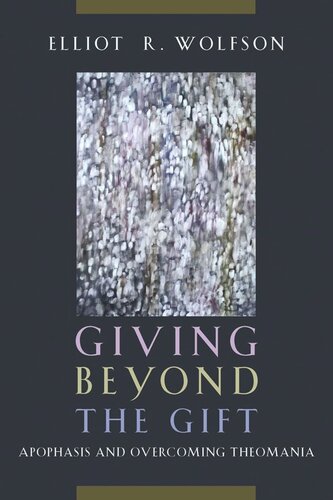

Most ebook files are in PDF format, so you can easily read them using various software such as Foxit Reader or directly on the Google Chrome browser.
Some ebook files are released by publishers in other formats such as .awz, .mobi, .epub, .fb2, etc. You may need to install specific software to read these formats on mobile/PC, such as Calibre.
Please read the tutorial at this link: https://ebookbell.com/faq
We offer FREE conversion to the popular formats you request; however, this may take some time. Therefore, right after payment, please email us, and we will try to provide the service as quickly as possible.
For some exceptional file formats or broken links (if any), please refrain from opening any disputes. Instead, email us first, and we will try to assist within a maximum of 6 hours.
EbookBell Team

4.7
106 reviewsThis book grapples with the extent to which several twentieth-century Jewish thinkers—Cohen, Buber, Rosenzweig, and Levinas—were all keenly aware of the pitfalls of scriptural theism and the penchant of the human imagination to conjure false representations of transcendence, and yet, in differing degrees, they each gave in to the temptation of personifying that transcendence, even as they tried either to circumvent or to restrain it by apophatically purging the kataphatic descriptions of the deity. Derrida and Wyschogrod, by contrast, carried the project of denegation one step further, embarking on a path that culminated in the aporetic suspension of belief and the consequent removal of all images from God, a move that seriously compromises the viability of devotional piety. Following the path of these thinkers, the book calls for a more far-reaching apophasis that surpasses the theolatrous impulse that lies coiled in the crux of theism, an apophasis of the apophasis, based on the acceptance of an absolute nothingness—to be distinguished from the nothingness of an absolute—that does not signify the unknowable One but the manifold that is the pleromatic abyss at being’s core. On this score, the much celebrated metaphor of the gift would give way to the more neutral and less theologically charged notion of an irreducible and unconditional givenness in which the distinction between giver and given collapses. To think givenness in its most elemental phenomenological sense is to allow the apparent to appear as given without presuming a causal agency that would turn that given into a gift.